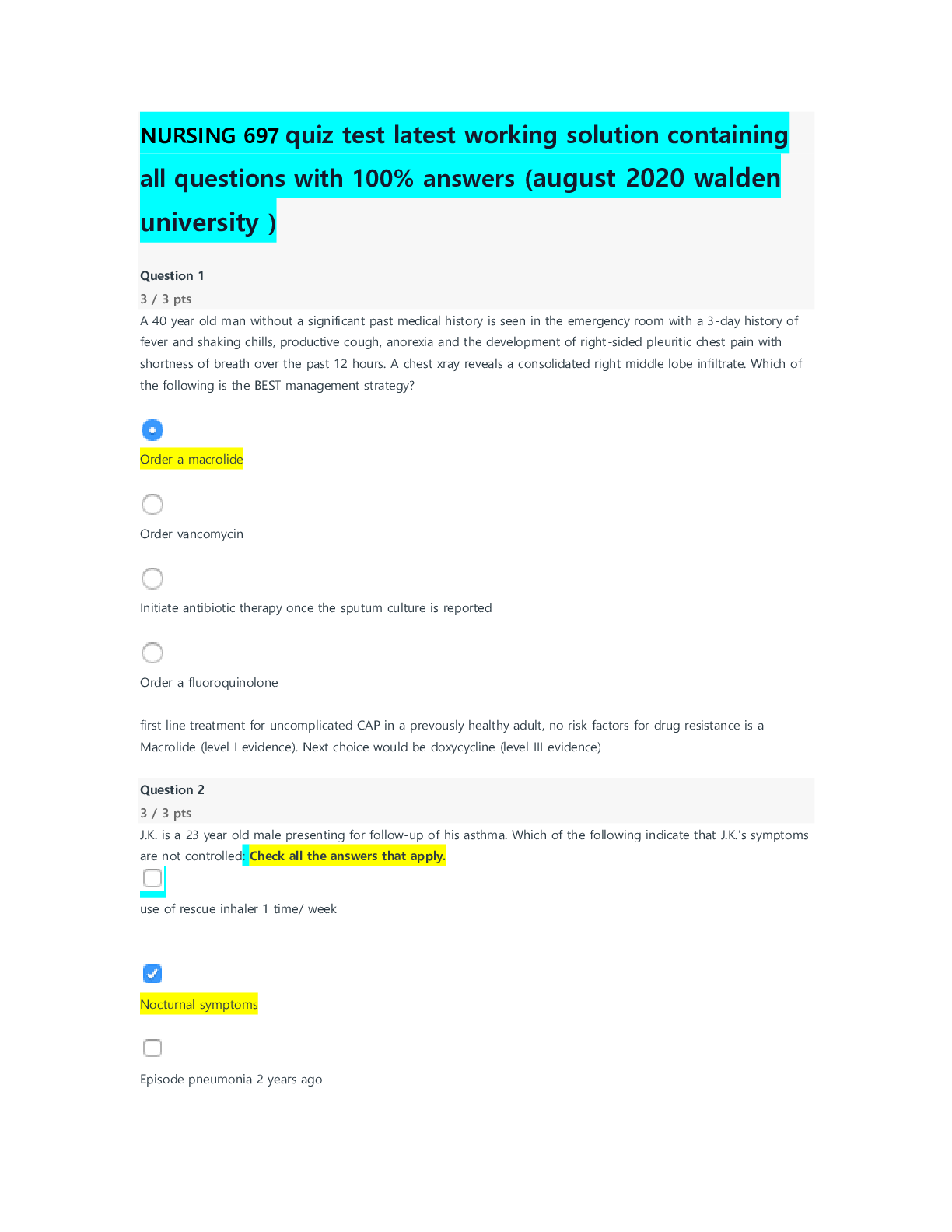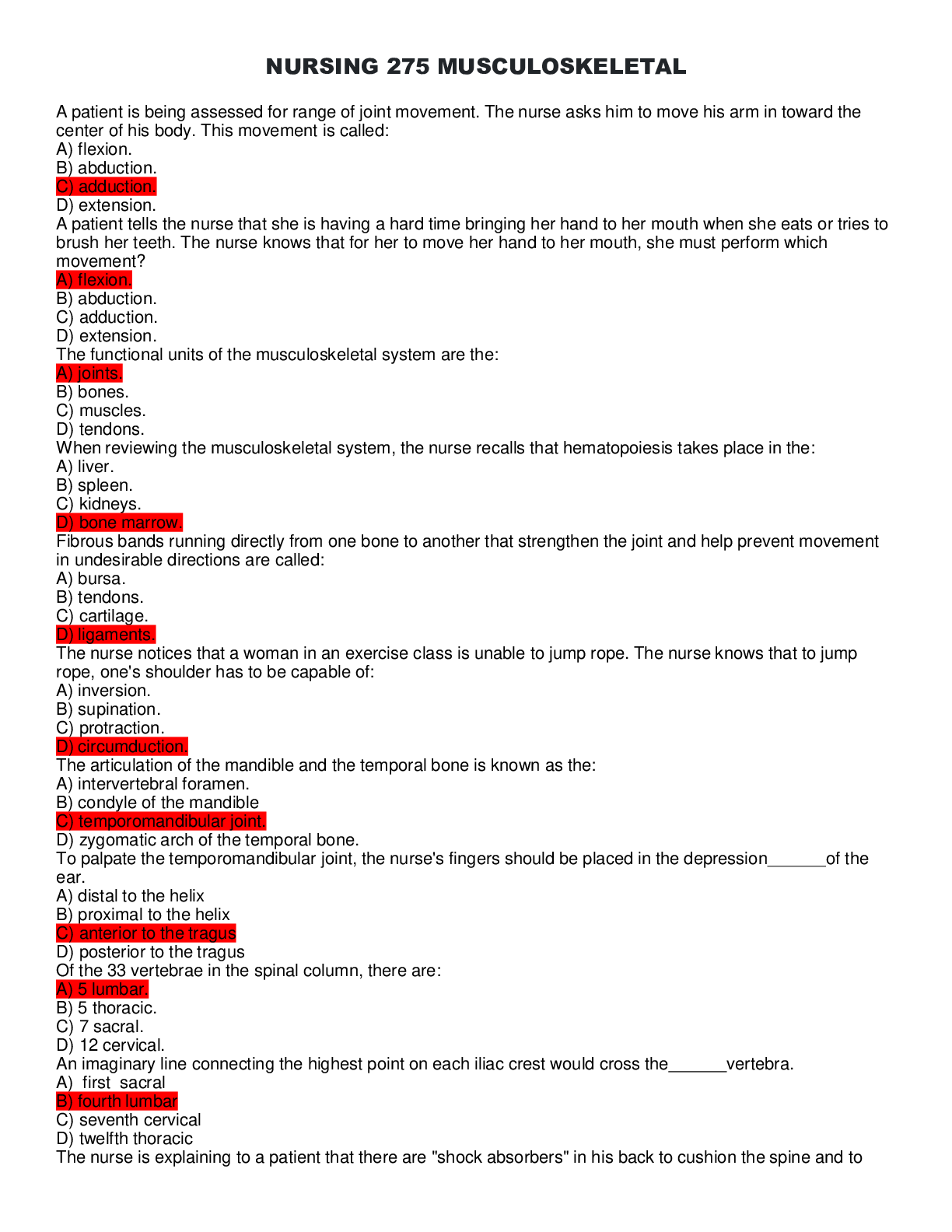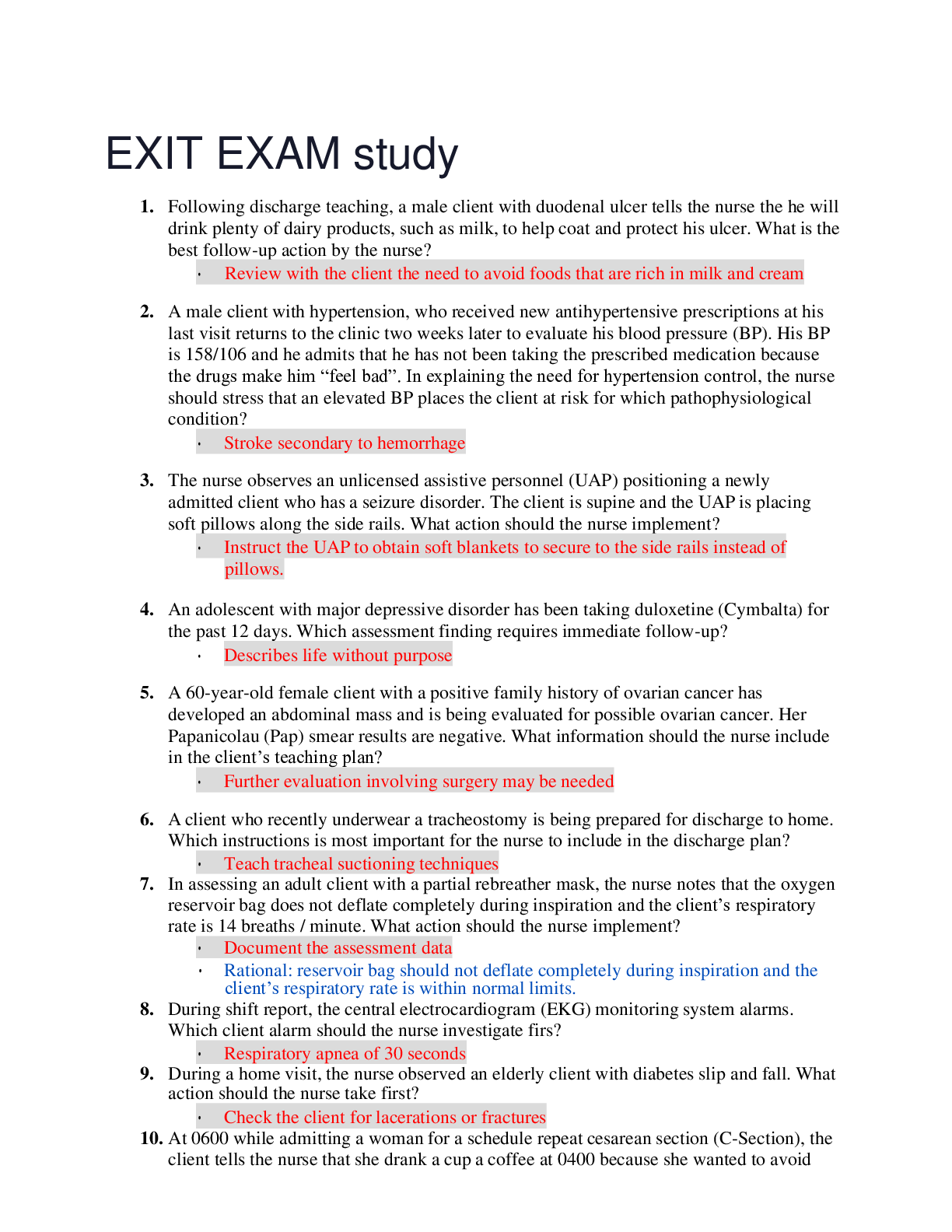Linguistics > QUESTIONS & ANSWERS > Pasadena City College - LINGUISTIC 014Do You Speak American? ( 10 QUESTIONS WITH 100% CORRECT ANSWER (All)
Pasadena City College - LINGUISTIC 014Do You Speak American? ( 10 QUESTIONS WITH 100% CORRECT ANSWERS )
Document Content and Description Below
Thiri Nandar Mar 5, 2019 Professor Potter Linguistics 014 Do You Speak American? 1. Robert MacNeil says, “Americans consider themselves egalitarian and unsnobbish about accents, but they’re ... full of notions about how not to speak.” Do you agree that Americans are opinionated when it comes to language? What might be some examples of this? Has anyone ever instructed you to change your speech? Do you think that person was right to correct you? 2. MacNeil describes English in New York City as “a language that fuels the great publishing empires. From the city that never sleeps – 24/7, on TV, cable, radio, electronic media – come the words and ideas that define American culture and market it to the world. You can make a case that New York City is now the global capital of English language.” Do you agree? How do you feel about English being used around the globe? For what reasons would people use English rather than another language? 3. a. People who make a living in language-related professions are often divided into two camps that MacNeil refers to prescriptivists and descriptivists. Language teachers, editors, and other people whose job it is to work with what they consider correct English are likely to take prescriptivist stance. The linguists and social worker you see in Episode 1 can be considered descripitivists because they are interested in how language is really used rather than prescribing how to use it. New York Magazine theatre critic John Simon and Oxford English Dictionary editor Jesse Sheidlower show themselves to be on opposite sides of this language debate. How can you tell which of the two is presccriptivist or a descriptivist? b. John Simon claims that in his experience “language can always disintegrate further,” and “there is no bottom.” Do you believe that the English language is disintegrating? If so, what measures would you propose to save English? Do you agree that language can always get worse? What would be the outcome if English continued to disintegrate? What would the language be like then? c. Did you know that the English of 1000 years ago was so different from today’s English that we can’t read it today without translation? . 4. Dr. Cutler claims that White male teens “who are sort of afraid of women or young women and are in the process of trying to figure out how it is that one deals with them” are often attracted to “hard core rappers” because these rappers illustrate a type of “masculinity that doesn't perhaps exist in the safe White suburbs.” What assumptions about gender identity and gender roles underlie this claim? What is meant by “types of masculinity”? Is there more than one type, and, if so, what types are there? What forms of masculinity are available in White suburbs that aren’t available to “hard core rappers”? 5. What is your language heritage? Did you or any of your ancestors learn English as a second language as a result of being in America? If so, what has happened to the other language(s) your family originally spoke? 6. Linguist Dennis Preston conducts research about language ideology—what people think about different regional varieties of English. In the first episode, he asks people on a train to draw on maps where they think the best and worst American English is spoken. Where do you think good American English is spoken? Where is the worst spoken? 7. Kirk Arnott, an editor at The Columbus Dispatch, lists several words that he says are often used incorrectly in today’s English: for example, nonplussed, importantly, and bemused. Is it important that people like Arnott monitor the use of words? Do you use any of these words yourself? If so, how do you use them? 8. There is a popular belief that Americans are sounding more like each other all the time– that is, that variations in language are being lost because of the influence of mainstream media. However, Dr. William Labov and others in the series present evidence that certain aspects of language, such as pronunciation, are becoming less similar across different groups, depending on such factors as geographic region. Does this surprise you? If Labov is right, what might be some reasons that the English used in mass media does not seem to have an influence on individual speech? 9. Dr. John Baugh does research on what is called language profiling, or how people are judged according to how they speak. Are you surprised that people who speak African American or Chicano English are treated differently than mainstream English speakers over the telephone? Do you think it is possible to tell people’s ethnicity and socioeconomic status based only on how they talk? 10. Baugh says, “It’s often assumed by Blacks as well as Whites that African Americans speak bad or lazy English. In fact, Black English has roots as deep and a grammar as consistent as Scottish, Irish, or any other of the Englishes spoken around the world.” What is Baugh referring to when he says, “roots as deep and a grammar as consistent as . . . any other of the Englishes”? [Show More]
Last updated: 2 years ago
Preview 1 out of 4 pages

Buy this document to get the full access instantly
Instant Download Access after purchase
Buy NowInstant download
We Accept:

Reviews( 0 )
$7.00
Can't find what you want? Try our AI powered Search
Document information
Connected school, study & course
About the document
Uploaded On
Apr 05, 2021
Number of pages
4
Written in
Additional information
This document has been written for:
Uploaded
Apr 05, 2021
Downloads
0
Views
142























.png)

